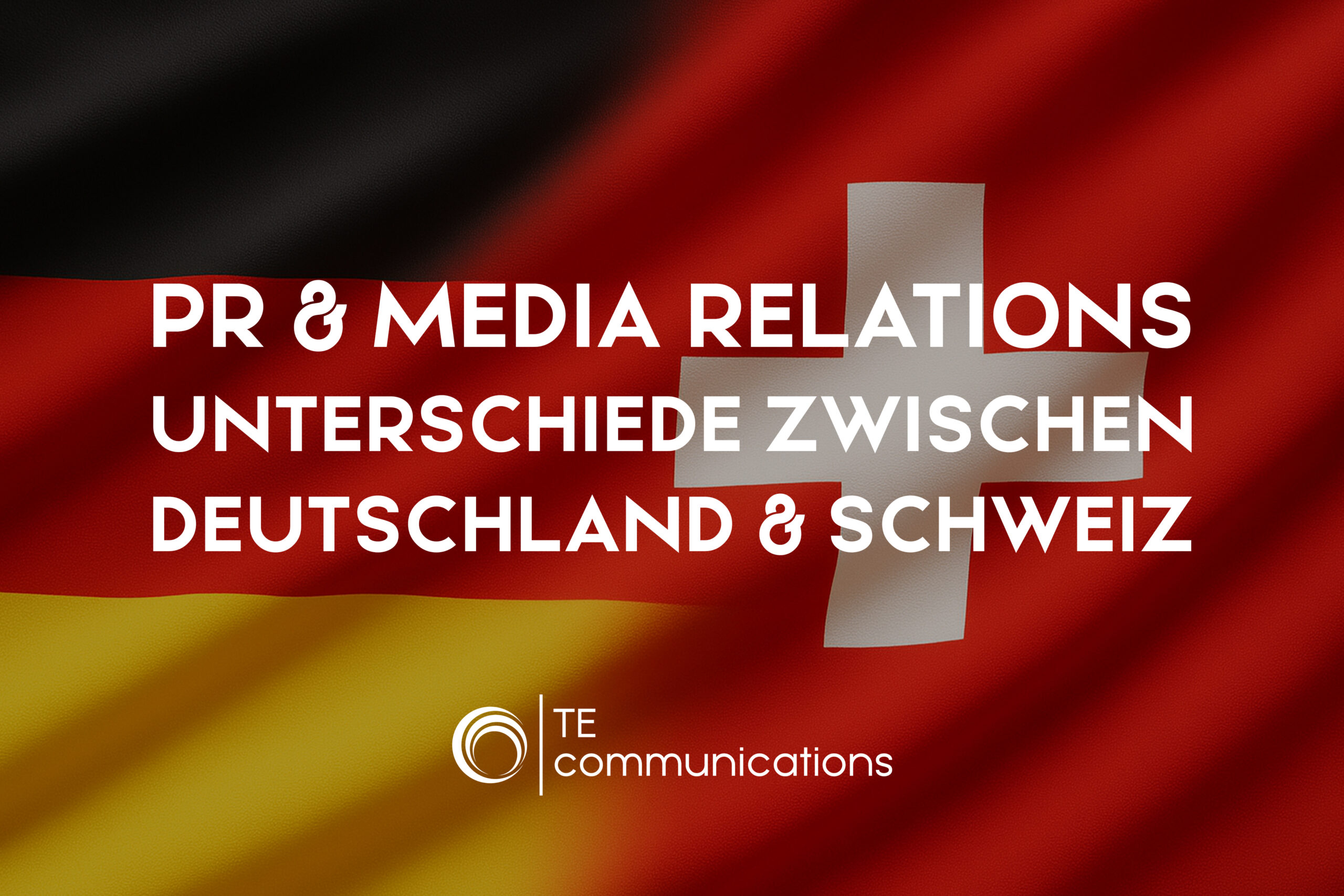Blog post by Thomas Egger, Owner and Founder TE Communications.
As the owner of a communications agency operating in the DACH region, I’m often asked about the key differences between PR and media relations in Switzerland and Germany – particularly when it comes to companies in the financial and technology sectors. While the two countries may be close in terms of language and geography, there are several distinctions when it comes to the media landscape, communication culture, and working methods.
Media Landscape: Small and Highly Competitive
The most obvious difference lies in the size of the media offering. While Germany boasts a wide range of media – including many niche publications – Switzerland’s media landscape is considerably more limited. For instance, there are relatively few specialist financial and business titles in Switzerland. Finanz und Wirtschaft, for example, is only published twice a week, whereas Handelsblatt appears daily. Trade magazines such as Fonds professionell or Private Banking Magazin, which directly address the wholesale market in Germany, are virtually non-existent in Switzerland. At the same time, the Swiss market is highly competitive: the financial sector is particularly prominent here, with countless banks and asset managers all seeking media coverage. The bar for capturing journalists’ interest is therefore set high. Those who want to succeed must not only bring relevant topics to the table, but also have the right contacts and a well-honed instinct for communication.
Cultural Differences: Tone is Key
Contacts with journalists are the be-all and end-all of media relations, and the countries do not differ in this respect. What they do differ in is the way they communicate. While communication in Germany is often more direct and things are brought straight to the point, this can be less well received in Switzerland. A more diplomatic tone is generally preferred.
B2B Topics: Less Coverage in Switzerland
Germany is home to a wide range of specialist media that cover industry-specific topics in depth – whether in finance, technology or other sectors. In Switzerland, however, such topics often struggle to find a platform. Most Swiss media cater to a broad readership. This means that B2B topics need to be tailored carefully in order to resonate with a wider audience.
One question I’m frequently asked is: can PR and media relations for Switzerland be handled from Germany – and vice versa? My clear answer: no. Without a dedicated local team, it’s very difficult to successfully manage a long-term mandate. In both countries, personal networks with journalists are crucial – and such networks are nearly impossible to build without being regularly on the ground. The hurdles mentioned above and the limited space in the media make it all the more important to be personally anchored and maintain long-term relationships.
Choosing an Agency: Two Teams or One Point of Contact?
Companies are often faced with the question of whether to work with two separate agencies – one for Switzerland and one for Germany – or to opt for a single agency covering both markets.
There’s often a strong case for working with a single point of contact – provided that this person or team is active in both countries. Working with one agency brings significant synergies: content can be effectively adapted and rolled out in both markets with a consistent strategy. It also greatly reduces coordination efforts, saving both time and resources.
Conclusion: Success Through Market Understanding
To run successful PR and media relations campaigns in Switzerland and Germany, it’s essential to understand the different market conditions – and take the right measures. While Germany’s larger media landscape offers more opportunities, Switzerland’s smaller and more exclusive media environment calls for targeted networking and a Swiss finish.
For companies, this means: if you want to be successful in both markets, you need a market-orientated strategy – and ideally an agency that knows the differences and can look after both markets locally from a single source.




